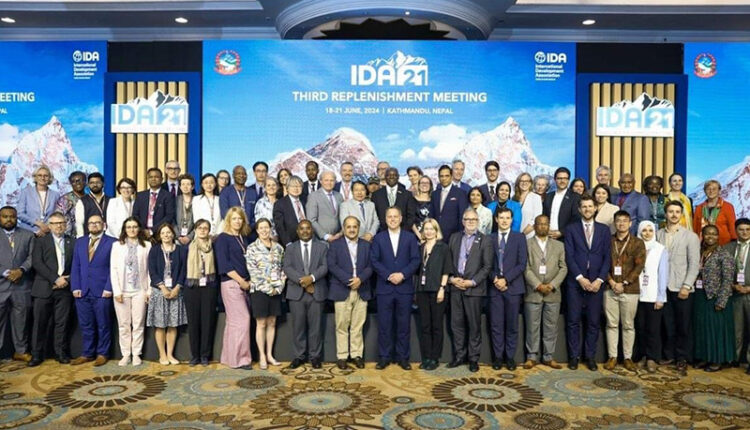Kathmandu: The Third Complementary Meeting of the International Development Association (IDA-21) under the World Bank Group in Nepal has determined the cooperation strategy and areas of cooperation for the poor and underdeveloped countries for the next three years from 2025 to 2028.
The meeting has prepared a three-year strategy plan for those (IDA) countries. In the technical session (closed session) that lasted for three days in the meeting, the financial scenario of IDA countries was discussed in depth.
Similarly, in the closing session, there was an in-depth discussion between donors, representatives of recipient countries, and high-ranking officials of the World Bank regarding the priority areas of subsidized loans and grants for poor and low-income countries for the next three years and their strategic framework, as well as the commitment of the necessary financial resources. .
The meeting concluded that a historically large economic package is necessary to address the challenges in the world economy and the development aspirations of IDA countries. Srikrishna Nepal, the coordinator of the management and coordination committee under the secretary organizing committee formed by the Ministry of Finance for the management of the meeting and the head of the international financial aid coordination division of the ministry, Shri Krishna Nepal, said that the achievements of the meeting will be historic for poor and less developed countries.
“The first IDA worked on an input-based strategy”, he said, “now there has been a theoretical agreement to make the results output-based.” The meeting has decided the initial strategy of creating an environment of opportunity and access to electricity and information technology for the people of the IDA country.
He said that in education and health, which were previously on the list of creating opportunities, now IDA has put forward a strategy to emphasize quality improvement. IDA will create more programs and strategies to end gender discrimination and include women in empowerment while emphasizing on inclusive development policy.
The conclusion of IDA is that in order to include women in mainstreaming, participation in development and decision-making processes should be increased at the educational and economic level. The World Bank’s meeting in October will further discuss IDA’s conclusions, and the final meeting of IDA 21 in South Korea on December 25th and 26th (December 10-11) will make a formal decision on the implementation of the three-year strategy.
Prime Minister Pushpa Kamal Dahal Prachanda inaugurated the meeting which lasted for four days at Hotel Solty Plaza in the capital. Finance Minister Varshman Pun Anant concluded the meeting on Friday. This is the biggest program organized by World Bank Group in Nepal so far.
More than half a dozen vice presidents and directors participated in the meeting, including World Bank Senior Managing Director Axel van Trotsenverg. More than 200 representatives from 61 countries came for the meeting. For the management of the meeting, the Ministry of Finance formed an organizing committee under the leadership of Secretary Madhukumar Marasini and a management and coordination committee under the coordination of Deputy Secretary Sri Krishna Nepal, head of the Ministry’s International Financial Assistance Coordination Division.
Established by the World Bank in 1960, IDA is the leading agency of the international alliance of development partners. It has been providing concessional loans, grants and multilateral aid for poor countries that are behind in development and have low income.


Comments are closed.